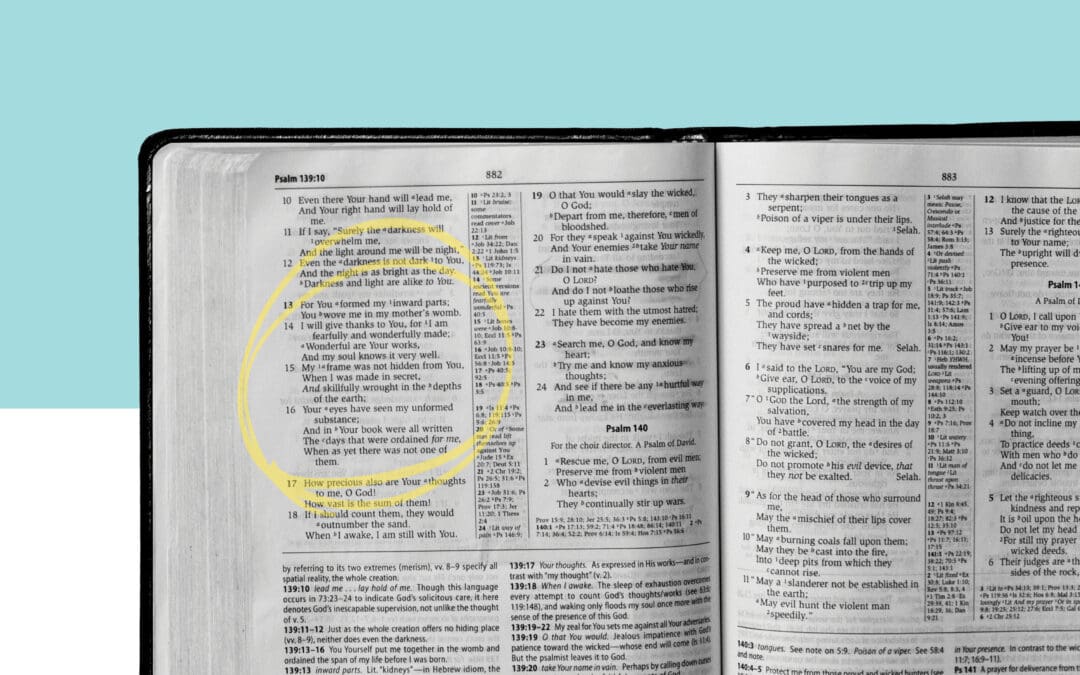For several years, the pro-choice movement has worked hard to convince Christians that abortion is not out of line with their biblical beliefs. And since the overturning of Roe v. Wade in 2022, these efforts have accelerated and become more aggressive. Indeed, the pro-choice movement’s efforts to attract churchgoing Christians to their cause have evolved from “abortion is not against your religion,” to “abortion honors your religion.”
In short, the pro-choice movement believes it can achieve total victory in the culture wars if they are able to get our nation’s Christians, who make up about two-thirds of the population, to jump on the “my body, my choice” bandwagon.
For example, a Seattle-based group called Shout Your Abortion, which boasts about providing abortion pills for women “regardless of legality,” recently sponsored six billboards along Interstate 55. The billboards stretched from Tennessee to Illinois on a route that supposedly, many Southerners would take to obtain abortions in Illinois. The billboards, according to Shout Your Abortion founder Amelia Bonow, were set up as a counterpoint to pro-life billboards that frequently line I-55. They said things like, “God’s Plan Includes Abortion,” “Abortion is Okay, You Know What’s Right for You,” and “Abortion is Normal, You are Loved.”
As Christians, we should know that these bumper sticker slogans are not biblical. Indeed, even a cursory review of biblical principles will find that the pro-choice position is completely out of alignment with the life and teachings of Jesus. Abortion is the violent ending of an innocent, unborn child’s life, who was made in the image and likeness of God. Despite this reality, too many Christians fail to see the biblical reasons to be pro-life and succumb to pro-choice propaganda. This is why it’s critical that believers stay focused on what scripture really says about the sanctity of life. Indeed, there are four incompatible ideas that reveal how the pro-choice position does not align with Scripture.
4 Incompatible Ideas Between Scripture and the Pro-Choice Position
#1 The Great Commandment
Take the Great Commandment, in which Christ Himself tells us to love God and to love our neighbor as ourselves. How does aborting an unborn child align with this commandment? When a baby is aborted, the first two loves vanish. We are left with the love of self. Indeed, it is idolatry to place the love of ourselves above our love of God and others. These “three loves” must coexist in order to function in God’s economy.
#2 The Great Commission
The other bookend of our Christian faith is the Great Commission: to make disciples for Jesus Christ and to teach them all that Christ has taught us. How does aborting a child facilitate disciple-making? Indeed, it halts the process of discipleship. You can’t make a disciple of one of God’s image-bearers if he or she is no longer alive.
#3 The Vulnerable
The Lord also commands that we are to sacrifice ourselves for vulnerable people. James 1:27 points out the call we are to care for widows and orphans. Again, how does ending the life of a vulnerable unborn child, or advocating for the ending of that life, align with this value?
#4 Life and Conception
Christians must also embrace the pro-life position because Jesus’ human life began at conception. Pro-choice Christians often argue that a child in the womb is a “potential life.” That would be the same as saying that Jesus, when He was in Mary’s womb, was “potential life.” But Scripture points out that Jesus was both fully God and fully man. There could not have been a time, in His humanity, when Jesus was not alive. That would violate everything Christians know about God and His son.
Moreover, Hebrews 2:17 reminds us that Jesus was to be “made like his brothers” in “every respect.” That includes his development in His mother’s womb. If Jesus’ life began at conception, and He is like us in every way, then our lives began at conception, too. We don’t become one of God’s image bearers sometime in the middle of the pregnancy, or after we are born. We are either always God’s image bearers, or we never are.
To further this point, Jesus’ coming into this world is flooded with what today would be considered “pro-life rhetoric.” When Mary, early in her pregnancy, visits her cousin Elizabeth, who after being barren for a number of years was late in her pregnancy, Elizabeth’s child leaped in her womb (Luke 1:39-45). John the Baptist, whom Elizabeth was carrying in her womb, responded to Christ, who Mary was carrying in her womb. As Christians, we must see this as clear evidence that Scripture recognizes human life in the womb both at the early stages and late stages of pregnancy.
If Christians believe that all life is sacred and has value, and if Scripture clearly indicates that the unborn are lives, then Christians must embrace the pro-life position. On the other hand, the pro-choice movement puts the most vulnerable in our nation at risk. Christians need to stay the course and remain pro-life for biblical reasons that will never change, regardless of how the culture’s values may change over time.
The future of the battle to protect unborn lives depends on Christians holding the line not only rhetorically, but through their good works of caring for and loving women and men at risk for abortion. Care Net’s goal is to provide gospel-centered pregnancy support to help people choose life for their unborn children and abundant life for their families. Our prayer is that we will be a witness to not only the world, but to fellow Christians through this work, and that the Holy Spirit will reveal how God’s Word provides all the evidence we need to protect the unborn and to love their parents.
For more details on the biblical case for life, and how to present it to pro-choice Christians, download your free copy of, Is the Pro-Choice Position Consistent with the Life and Teachings of Jesus?
{{cta(‘dde9ef70-b06c-489c-9b99-1f8d3d84846f’)}}

